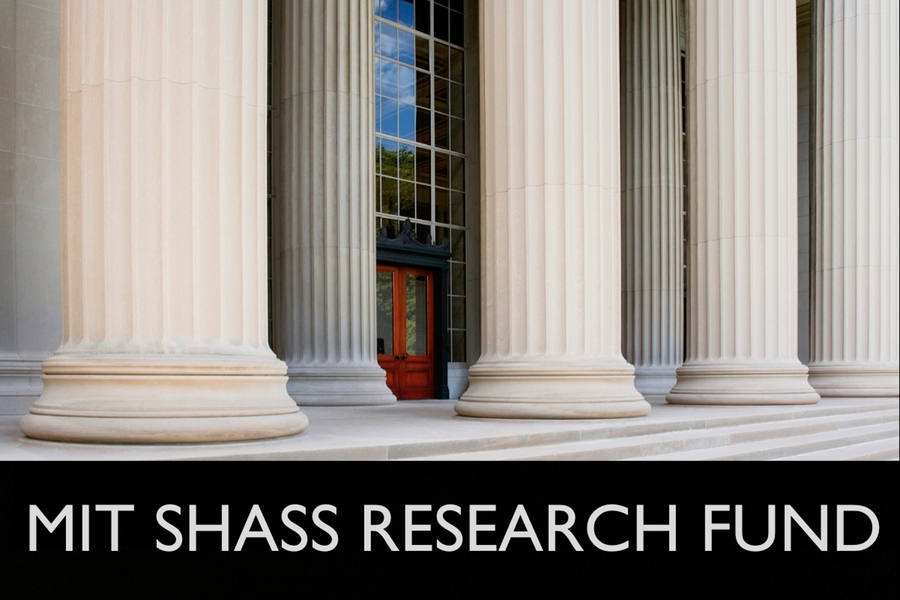The SHASS Research Fund supports MIT research in the humanities, arts, or social sciences that shows promise of making an important contribution to the proposed area of activity. The 10 recipients for 2016 are:
Takako Aikawa, senior lecturer in Japanese: Funding will support research that explores how virtual reality (VR) technology can be tailored to language learning; what types of language learning activities and teaching methods are effective when using VR technology; and what types of interactions can best support language learning in a VR environment.
Sana Aiyar, assistant professor of history: Funds will facilitate research in South Africa, Myanmar, and England toward the completion of a new book project, "Ideas of India and Hierarchies of Inequality across the Indian Ocean." The book will examine the ways that shifting perceptions about India and Indianness, from Africa to Burma, generate and dismantle divisions among Asians and Africans.
Ian Condry, professor of comparative media studies: Funding will support research that addresses the dynamics of income inequality by analyzing how individuals and groups secure livelihoods through music. Via ethnographic explorations of the value of music in different settings, the study will offer a portrait of an industry in transition.
Mark Harvey, senior lecturer in music: Research funds will support the recording of original large-scale compositions performed live at MIT with the Aardvark Jazz Orchestra. The centerpiece will be a three-movement suite inspired by and dedicated to the victims of the Boston Marathon bombings, including MIT Police Officer Sean Collier.
Heather Hendershot, professor of media studies: Funds will support the completion of a new book, "Open to Debate: How William F. Buckley Put Liberal America on the Firing Line." It traces the trajectory of Buckley's career as an editor, public intellectual, and television personality, as well as the way his work informed the development of 20th-century American conservatism.
Clapperton Mavhunga, associate professor of science, technology, and society: Research funds will support fieldwork and archival research in Mozambique, Botswana, and Zimbabwe, leading toward the completion of a new book, "African Chemistry: An Introduction." The work focuses on the historical, philosophical, cultural, technical, environmental, and ethical dimensions of African chemistry as defined, practiced, and experienced by Africans.
Shigeru Miyagawa, professor of linguistics, and the Kochi-Manjiro Professor of Japanese Language and Culture: In the funded project, Miyagawa and a graduate student will work with scientists from the University of Tokyo, Kyoto University, and Durham University to address one specific aspect of integration hypothesis — the expression structure — from the perspectives of primate communication, birdsong, and human language.
Frank Schilbach, assistant professor of economics: Funding will support innovative, interdisciplinary research into the consequences of chronic sleep deprivation among the urban poor in developing countries. Objective and subjective measures of sleep, economic outcomes, and cognitive function as well as behavioral outcomes will all be measured.
Bradford Skow, associate professor of philosophy: Funding will support the completion of a new book, "Reasons Why," on the nature of explanation. The theory, and the strategy for defending it, are based on two innovative original analyses.
Elizabeth A. Wood, professor of history: Funds support the completion of "Power and Performance in Putin’s Russia," a book that analyzes the twists and turns in Putin's cult of personality as well as his interactions with Russia's Duma from 1999 to the present, showing how the weakness of guiding principles and the reliance on image-making has left the Russian polity adrift and made it easy for a nationalist, expansionist form of rule, accompanied by increasing censorship of internal media, to take hold.
MIT's School of Humanities, Arts, and Social Sciences is home to research that has a global impact, and to graduate programs recognized as among the finest in the world. With 13 academic fields, the school's research portfolio includes international studies, linguistics, comparative media studies, economics, poverty alleviation, literature, anthropology, digital humanities, philosophy, global studies and languages, music and theater arts, writing, political science, security studies, women's and gender studies, and history. MIT-SHASS research helps alleviate poverty; safeguard elections; steer economies; understand the past and present; assess the impact of new technologies; understand human language; create new forms at the juncture of art and science; and inform policy and cultural mores on issues including justice, healthcare, energy, climate, education, work and manufacturing, inclusion, and economic equity.






